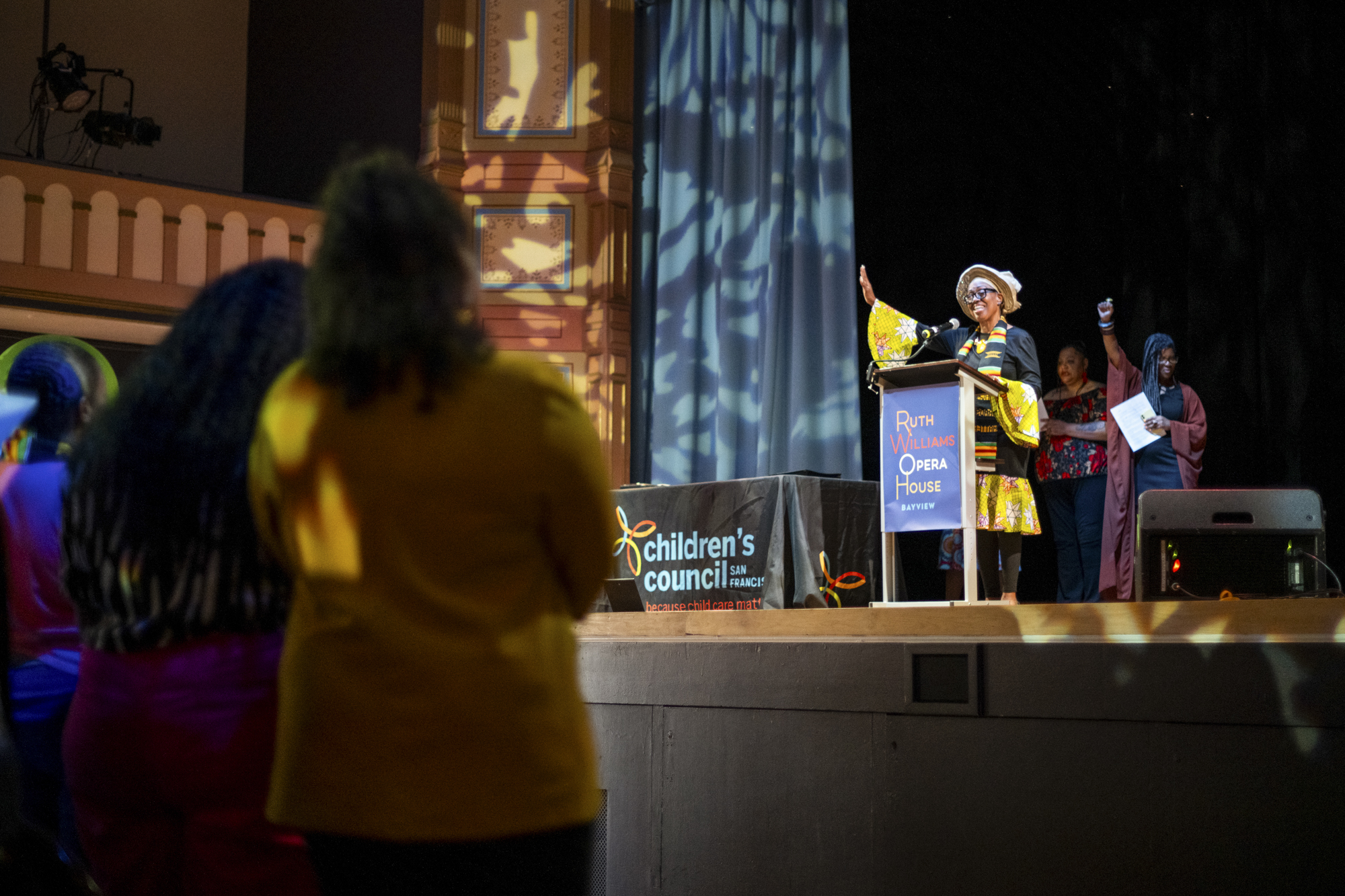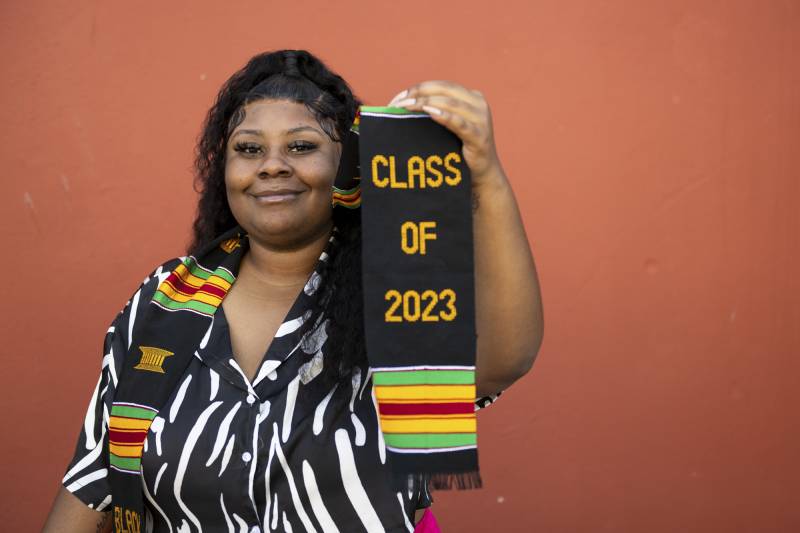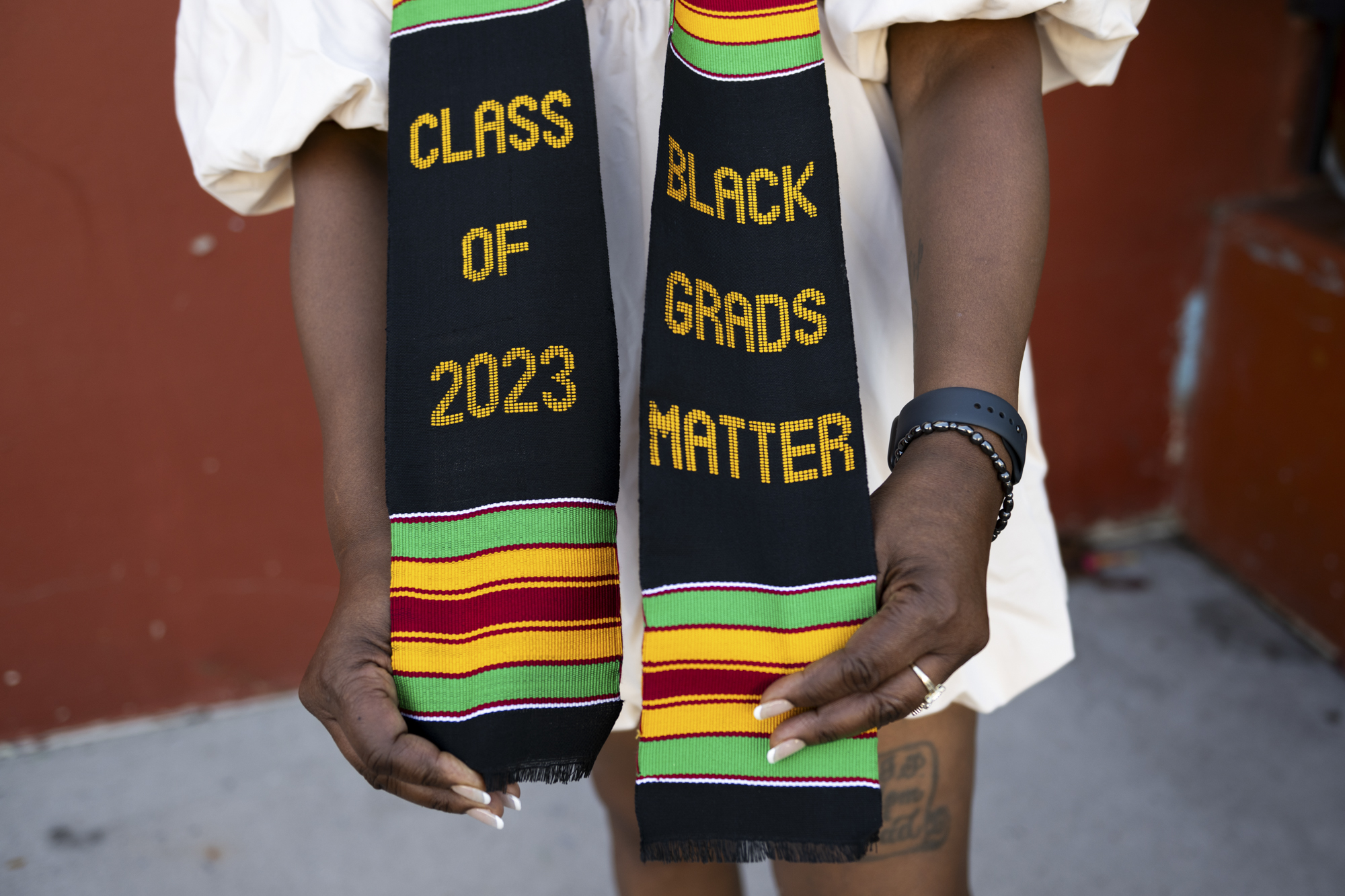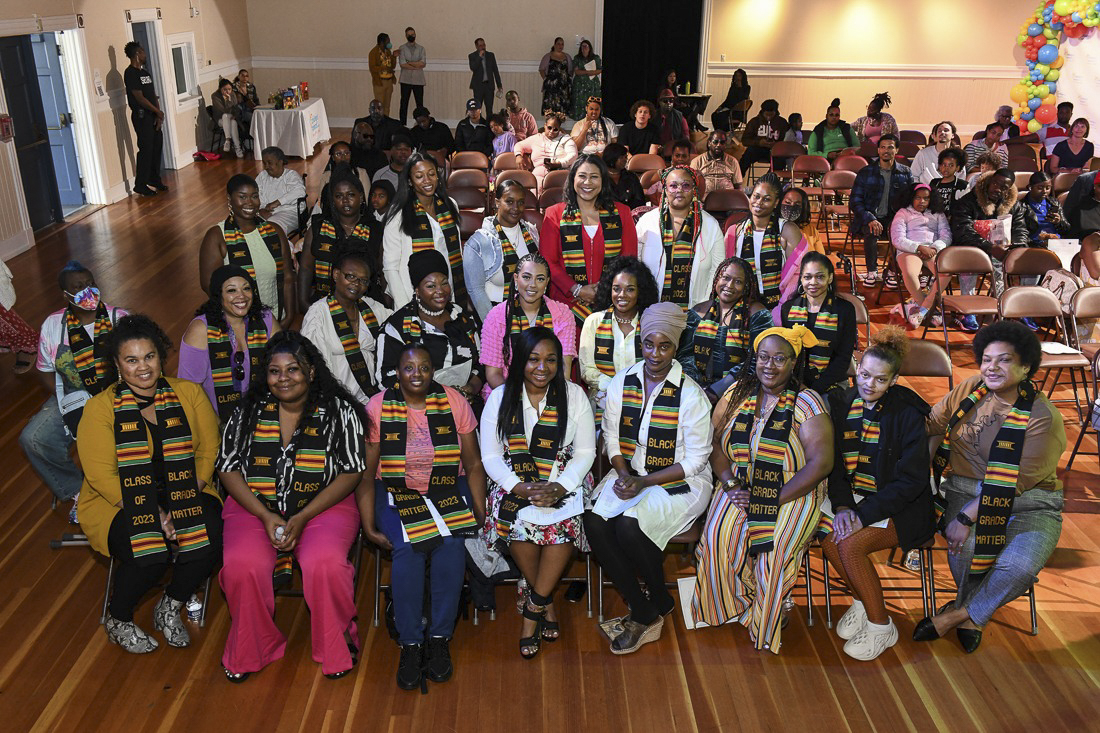One sunny morning in mid-July, dozens of people filled the Bayview Opera House, in the heart of San Francisco’s historically Black neighborhood, to celebrate the 39 women and men who graduated from a training program for Black early childhood educators. The audience sang “Lift Every Voice and Sing,” watched Mayor London Breed deliver the commencement address, and cheered as the graduates walked across the stage to receive their certificate of completion — each one wearing graduation stoles with the words “Black Grads Matter.”
Their achievements were a cause for celebration because of the high expectations riding on this city-funded program: to increase the number of Black early educators in San Francisco so they can help Black infants, toddlers and preschoolers gain the skills necessary to succeed in kindergarten and beyond.
“This is about changing lives, this is about changing the future of African Americans in San Francisco,” the mayor said at the graduation ceremony, hailing the program as an effective investment of her signature Dream Keeper Initiative.

Creating a Black early childhood educator pipeline
Breed and Supervisor Shamann Walton co-founded the initiative in 2021 after the police killing of George Floyd sparked demands for police reform and a rethinking of policies that contributed to decades of inequities (PDF) and the decline of San Francisco’s Black population. They began by steering $60 million annually in Police Department funding toward helping Black residents start businesses and take out loans to buy homes. At the time, Walton called the initiative “a first step towards true reparations for the Black community here in San Francisco.”
About $1.6 million from that fund was also set aside to support the Pipeline for Black Early Childhood Educator pilot program. Je Ton Carey, who oversees the program for the nonprofit Children’s Council San Francisco, said it’s already showing promising results. Over the past two years, 62 out of about 80 participating students obtained associate teaching permits in early childhood education from City College of San Francisco and have gone on to work in classrooms, start their own family child care business or pursue higher degrees. Recently, the city approved an additional two years of funding for the program.


